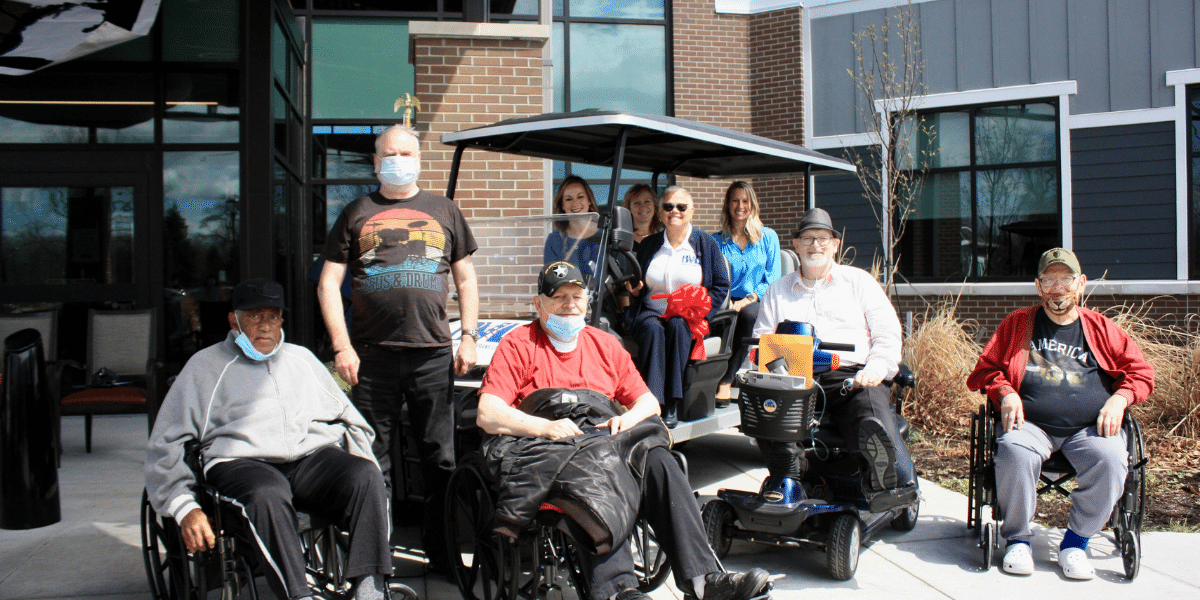Friends of the St Clair River Using EGLE Grant to Continue Growth
The Friends of the St. Clair River are part of a $600,000 grant program administered by the Michigan Department of Environment, Great Lakes, and Energy. The grants are for conservation and educational efforts.
The Friends of the St. Clair River received $40,000, the maximum allowable grant amount. Friends President, Sheri Faust, said that the organization is “deepening its roots across Michigan’s Thumb Coast to better serve our region’s long-term environmental health and improve awareness for St. Clair County’s natural resources.”
The St. Clair County organization works to protect and restore water resources in the St. Clair River watershed. As demand for services rises, the organization needs to scale to meet demand. Faust said the organization is hiring its first-ever Executive Director.
Expressing thanks for the EGLE grant, Faust said the money will be used to build “boots on the ground to support our organization with conservation and education efforts.” Future projects include education on urban and agriculture pollution sources.
Reporting for WGRT – Jennie McClelland
Local Couple Can Help Choreograph Memorable Wedding Dances
Want to kick your wedding up a notch? A local couple has just the thing. Dan and AnnaLee Higgins, a local married couple who are both professional dance instructors and theatrical performers, are offering wedding dance choreography and lessons.
The entrepreneurs were recently married and had a chance to impress their reception guests with their own professionally choreographed dance. They want to share that feeling of wowing the guests with other couples.
Mr. and Mrs. Higgins met while performing at a theater in Indiana and eventually decided to make Port Huron their home. They both teach dance lessons at Mainstreet Dance Connection in Port Huron.
AnnaLee said that wedding dances are a fun surprise when guests don’t expect a choreographed number from non-dancers. She said that they can choreograph dances for any event, not just weddings.
The Higgins’ can also work with people who are not comfortable with dancing to make them more at ease at events where dancing is expected, and with traditional father-daughter, or mother-son wedding dances.
Photo by Mulberry & Sage Photography
www.mulberryandsage.com
https://mainstreetdance.wixsite.com/mainstreetdance/wedding-event-choreography
Reporting for WGRT – Jennie McClelland
M-25 Between Fisher and Mortimer Line Schedule for Two-Month Resurfacing Project
Drivers on M-25 in southern Sanilac County need to be aware of road work scheduled to begin next week. The 5.6-mile stretch between Fisher Road and Mortimer Line roads will be under construction for two months.
The road work has a $1.4 million price tag and includes a complete resurfacing. Other planned projects include joint repairs, shoulder improvements, and pavement markings.
The Michigan Department of Transportation reports that the work is meant to create a smoother roadway while extending the life of the important north-south corridor.
For the duration of the construction project, one lane will be open during daytime working hours with traffic regulators. Lane restrictions will be removed at the end of each day.
The road work is estimated to be creating or sustaining twenty jobs, according to MDOT. The project is expected to begin on Monday, May 2nd, and run until Thursday, June 30th, barring any unexpected delays.
With labor and materials costs rising, Michigan is spending billions on road construction and other infrastructure projects this year.
Reporting for WGRT – Jennie McClelland
Golf Carts Donated by Bowlers to Michigan Veterans Homes
There are many ways to thank a vet, but the Metro Detroit United States Bowling Congress and the Bowlers to Veterans Link have found an especially unique way to help out those who served their country through military service.
Two golf carts were donated to the Michigan Veteran Homes at Chesterfield Township by the non-profit. The bowling groups support veterans and active-duty service members through recreation therapy programs.
Tiffany Carr, community engagement coordinator for Michigan Veteran Homes said, “These golf carts will provide transportation for veteran members to enjoy the natural surroundings and observe a wide range of wildlife across 30 acres.”
Carr said, “We are so grateful for the BVL and Metro Detroit USBC as their generous donation enables our members to spend more time outdoors while celebrating camaraderie.”
The bowling charity started its work with veterans in 1942 when a women’s bowling association raised money to pay for medical transport planes that brought wounded soldiers from battlefields to American hospitals. They have been working with veterans for eighty years.
Reporting for WGRT – Jennie McClelland
The Athletic Factory Recreational Survey Needs Community Response
The Athletic Factory, a Port Huron non-profit that assists student-athletes in preparing for college, is asking for the community to take a few minutes to complete an online survey.
The Athletic Factory’s Executive Director, Cliff Thomason, said that the organization provides summer youth recreational programs where they provide open gym runs for middle school and high school kids at the James R. Leonard Center. Thomason said that during a planning meeting, they were discussing what other activities they might want to provide this summer and the survey was created.
The Athletic Factory is working to find out what the community feels is needed for the youth in our community and to eventually fill the voids.
The survey asks what activities participants would be interested in, from sports to crafts to dance. It also asks about the need for a community center, and where it should be located, along with questions about social media use and availability for programming. The short survey takes just a few minutes to complete. A link to the survey can be found below.
The Athletic Factory Recreational Survey
Reporting for WGRT – Jennie McClelland






